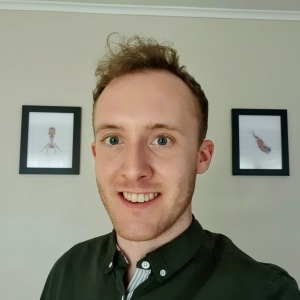I did my undergraduate at the University of East Anglia in the fine city of Norwich and then stayed to do a PhD straight after, graduating in 2018. My PhD was investigating how certain bacteria, found living in soil and in lake sediments, can “breath” on solid minerals/metals in the environment. In this process the bacteria are passing electrons out of their cells to essentially make a biological circuit with the electrons (used to give the bacteria energy) being conducted through the membrane surrounding the bacteria and out to the minerals themselves. This is their equivalent of humans using oxygen to pass electrons to after they’ve made us our cellular energy. The cool thing about the process is that you can swap the natural mineral for an electrode and the bacteria use it the same to pass electrons to as the respire. This then gives you a flow of electrons that you can put into a circuit and the end result is basically an electrical current you can use for anything you want. It’s essentially green energy as long as you feed the bacteria!
In my spare time I do lots of public engagement and science communication. I also love watching horror movies and playing video games.


I now work in science communication. After my PhD I worked as the Science Engagement and Outreach Officer at the Wellcome Genome Campus and am currently the Public Engagement Officer at the Babraham Institute. I develop and implement community level engagement events to provide opportunities for researchers to share their work and get public input into their research. I also support researchers develop their own public engagement programmes in their work.
I’ve basically turned my hobby into a job which is one of the nicest feelings! It’s also really important to me as I’m really passionate about opening up science and making sure everyone has the chance to engage. I grew up in a rural area and didn’t have the same opportunities others get. So for me being able to direct engagement programmes towards underserved audiences helps make my work feel really worthwhile.

Check out his website and follow him on Twitter, Instagram and LinkedIn using the links below:

